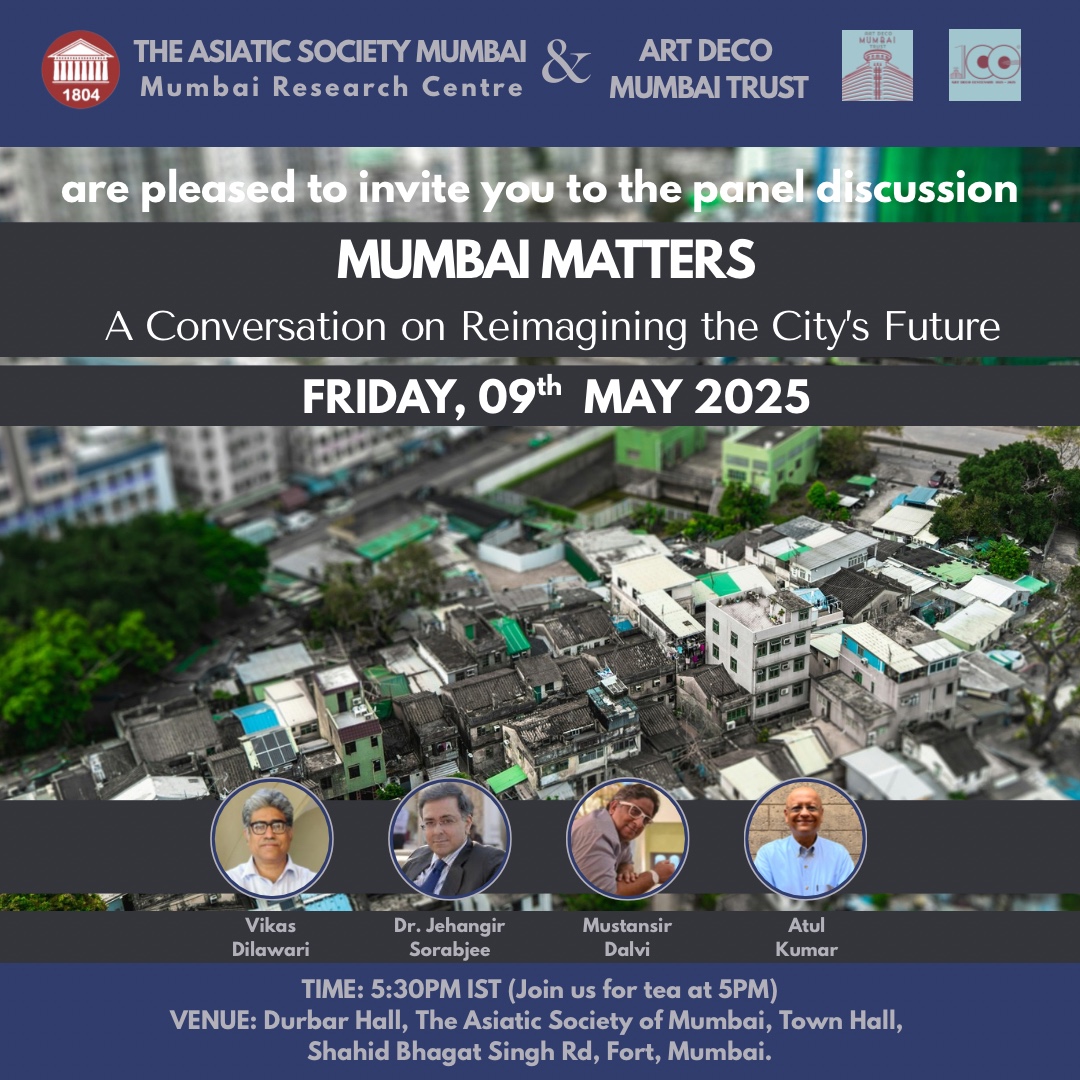 THE ASIATIC SOCIETY OF MUMBAI
THE ASIATIC SOCIETY OF MUMBAI
The Mumbai Research Centre of The Asiatic Society of Mumbai
invites you to a three-part online lecture series on
"Opium, Empire & The City"
by Amar Farooqui, Professor of History (retired), University of Delhi
The Mumbai Research Center of The Asiatic Society of Mumbai invites you to a three-partonline lecture series on "Opium, Empire & The City" by Amar Farooqui, Professor of History (retired), University of Delhi.
For most of the nineteenth century, opium was the second largest source of revenue for the British Indian government.We will trace the journey of opium from the poppy fields of Bihar, to Bombay and to Canton.
Poppy Fields of Bihar will outline the rise and decline of the opium enterprise.
The Problem of Malwa Opium will examine the emergence of the Malwa region as the major supplier of opium for the China market.
Bombay to Canton will focus on the role played by seaborne trade in opium in the rise of Bombay.
Date: 12,13,14 June, 2005
Time: 7 to 8.30pm
Lecture fees for the series:
Members: ₹750/-
General: ₹1000/-
Registration Links:
General: https://rzp.io/rzp/OpiumGeneral
Members: https://rzp.io/rzp/OpiumMembers
Please Note: Lectures will be conducted on Zoom. No recordings will be provided.
- Prof. Mangala Sirdeshpande, Hon. Secretary Asiatic Society of Mumbai.
- Dr. Shehernaz Nalwalla, Vice President of the Society & Chairperson – MRC
 THE ASIATIC SOCIETY OF MUMBAI
THE ASIATIC SOCIETY OF MUMBAI
The Mumbai Research Centre of The Asiatic Society of Mumbai presents
FROM BEHISTUN TO BOMBAY – A JOURNEY THROUGH THE WORLD OF CUNEIFORM with SHAILESH KSHIRSAGAR
This comprehensive course introduces participants to the fascinating world of Cuneiform script, beginning with theoretical foundations in Ancient Mesopotamian civilization and focusing specifically on Old Persian Cuneiform from the Achaemenid period (5th Century BCE). Students will develop practical reading skills by studying the Behistun Inscription's 1st and 4th columns, while exploring connections between the script and both Devanagari and Roman alphabets. The course examines the emergence of Zoroastrian deities in later inscriptions and provides archaeological evidence of the Achaemenid Empire's reach into Gandhar and India through direct textual analysis. The program culminates in an on-site reading of the Wadia Clock Tower Inscription at Mumbai's Fort, offering a unique opportunity to apply ancient Iranian language skills to a local historical artifact.
Monday, 2nd June 2025 - 4-6 PM
Wednesday, 4th June 2025 - 4-6 PM
Friday, 6th June 2025 - 4-6 PM
Saturday, 7th June 2025 - 1-3 PM
₹2000 (₹1500 Members)
Venue: Durbar Hall, The Asiatic Society of Mumbai
Registration Links:
General: https://rzp.io/rzp/CuneiformGeneral
Members: https://rzp.io/rzp/CuneiformMembers
- Prof. Mangala Sirdeshpande, Hon. Secretary Asiatic Society of Mumbai.
- Dr. Shehernaz Nalwalla, Vice President of the Society & Chairperson – MRC
 THE ASIATIC SOCIETY OF MUMBAI
THE ASIATIC SOCIETY OF MUMBAI
The Mumbai Research Centre of The Asiatic Society of Mumbai
and the Art Deco Mumbai Trust
invite you to the panel discussion
“Mumbai Matters – A Conversation on Reimagining the City’s Future”
The Mumbai Research Centre of The Asiatic Society of Mumbai and the Art Deco Mumbai Trust are pleased to invite you to the panel discussion “Mumbai Matters – A Conversation on Reimagining the City’s Future”, with Vikas Dilawari, Dr. Jehangir Sorabjee, Mustansir Dalvi and Atul Kumar.
Date and Time: Friday, 9 May, 2025 at 5:30 PM IST (Join us for tea at 5 PM)
Venue: Durbar Hall, Asiatic Society of Mumbai
Registration is Mandatory
Registration Link: https://forms.gle/ebUxR95ANhFVUKJh9
Mumbai is in the throes of transformation and is increasingly difficult to navigate – with rapid redevelopment, multiple infrastructure projects, and roads being relaid across the city. Yet, we carry on living here, with more people moving to the city everyday.
What keeps this city going, and is there a way to reimagine its future? With this discussion, we unpack what is shaping Mumbai today, and what we expect from city planners. Change is built into Mumbai’s DNA, but how do we adapt when it's too rapid to keep up? How is the new determination of Floor Space Index impacting the city? And are there learnings to be considered from other cities around the world? Steering away from nostalgia or despair, join us for a free-flowing conversation about Mumbai’s past, where we are today, and how we can manage our expectations for the future.
About the Panelists
Vikas Dilawari
Vikas is an award-winning conservation architect. His practice has successfully executed over 55 projects, 19 of which have won the UNESCO ASIA PACIFIC Awards for Cultural Preservation in South East Asia. He was also instrumental in nominating the erstwhile Victoria Terminus station (CSMT) as a World Heritage Site (WHS) in 2004.
Dr. Jehangir Sorabjee
Jehangir is currently a Honorary Prof. of Medicine and heads the Department of Medicine at the Bombay Hospital Institute of Medical Sciences. His book of rare aerial pictures of Mumbai, “Above Bombay” (2006), is widely acclaimed. A keen urban historian, he is frequently invited to speak on the hidden spaces embedded in Mumbai's urban fabric.
Mustansir Dalvi
Mustansir is an architect, author, editor, and academic. A core committee member envisioning the Sir JJ School of Art Architecture and Design (de-novo, deemed to be university), he is also Chairperson of the Board of Studies in Architecture, University of Mumbai. He received his PhD from IIT Bombay.
Atul Kumar
Atul is Founder Trustee, Art Deco Mumbai Trust. He has worked actively for the protection of open spaces, heritage conservation of south Mumbai’s Art Deco precinct, and its nomination to UNESCO as a World Heritage site. He is on the Board of Directors of the International Coalition of Art Deco Societies (ICADS), and Chairs their Preservation Committee.
- Prof. Mangala Sirdeshpande, Hon. Secretary Asiatic Society of Mumbai
- Dr. Shehernaz Nalwalla, Vice President of the Society & Chairperson – MRC

